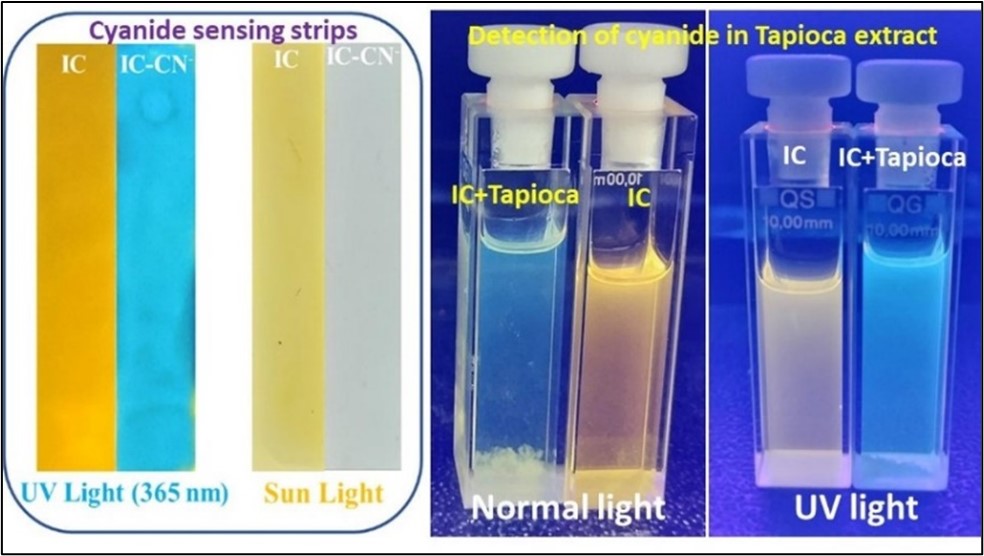PREVIOUS
New Cyanide Sensor
August 30 , 2024
474 days
637
0
- Researchers from Kerala has achieved a new chemical sensing by developing a highly sensitive and selective cyanide sensor.
- The team has created a material capable of detecting the toxic cyanide at low concentration.
- It will enhance the safety of drinking water and food products.
- Cyanide, a potent toxin, is present in various plants, fruits, and microorganisms.
- WHO is limiting the cyanide concentrations to below 0.19 mg/L due to its lethal effects on humans and aquatic life.
- Cyanide exposure can occur through consumption of certain foods like cassava (tapioca) and even common items like apple and apricot seeds, sprouting potatoes, and almonds.

Leave a Reply
Your Comment is awaiting moderation.


